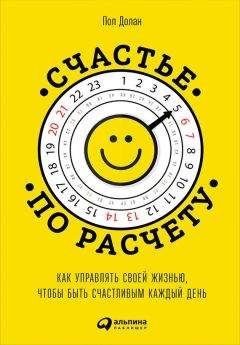Ознакомительная версия.
34
Wittgenstein L. Philosophical investigations, 4th edition. Wiley-Blackwell, 2009.
Russell B. Autobiography. Routledge, 1998.
Scollon C.N., Kim-Prieto C., Diener E. Experience sampling: promises and pitfalls, strengths and weaknesses. Journal of Happiness Studies 2003; 4: 5–34.
Kahneman D., Krueger A.B., Schkade D.A., Schwarz N., Stone A.A. A survey method for characterizing daily life experience: the day reconstruction method. Science 2004; 306: 1776–80.
White M.P., Dolan P. Accounting for the richness of daily activities. Psychological Science 2009; 20: 1000–1008.
Csikszentmihalyi M., Hunter J. Happiness in everyday life: the uses of experience sampling. Journal of Happiness Studies 2003; 4: 185–99; Dimotakis N., Scott B.A., Koopman J. An experience sampling investigation of workplace interactions, affective states, and employee well-being. Journal of Organizational Behavior 2011; 32: 572–88.
Anxo D., Mencarini L., Pailhé A., Solaz A., Tanturri M.L., Flood L. Gender differences in time use over the life course in France, Italy, Sweden, and the US. Feminist Economics 2011; 17: 159–95.
Verbrugge L.M., Gruber-Baldini A.L., Fozard J.L. Age differences and age changes in activities: Baltimore longitudinal study of aging. Journal of Gerontology B: Psychological and Social Sciences 1996; 51B: S30–S41.
Hamermesh D.S., Lee J. Stressed out on four continents: time crunch or yuppie kvetch? Review of Economics and Statistics 2007; 89: 374–83.
Dolan P., Peasgood T., White M. Do we really know what makes us happy? A review of the economic literature on the factors associated with subjective well-being. Journal of Economic Psychology 2008; 29: 94–122.
Layard R., Mayraz G., Nickell S. The marginal utility of income. Journal of Public Economics 2008; 92: 1846–57.
Fujiwara D. Valuing the impact of adult learning. NIACE Research Paper, 2012.
Schwandt H. Unmet aspirations as an explanation for the age U-shape in human wellbeing. Centre for Economic Performance, CEP Discussion Paper No. 1229, 2013.
Deaton A., Stone A.A. Grandpa and the snapper: the wellbeing of the elderly who live with children. National Bureau of Economic Research, 2013.
Frijters P., Beatton T. The mystery of the U-shaped relationship between happiness and age. Journal of Economic Behavior & Organization 2012; 82: 525–42.
Peasgood T. Measuring wellbeing for public policy. Imperial College London, 2008; Oishi S., Diener E., Lucas R. The optimum level of well-being: can people be too happy? Perspectives on Psychological Science 2007; 2: 346–60.
Eichhorn J. Happiness for believers? Contextualizing the effects of religiosity on life-satisfaction. European Sociological Review 2012; 28: 583–93.
Schimmack U., Oishi S., Furr R.M., Funder D.C. Personality and life satisfaction: a facet-level analysis. Personality and Social Psychology Bulletin 2004; 30: 1062–75.
Sutin A., Costa Jr P., Wethington E., Eaton W. Turning points and lessons learned: stressful life events and personality trait development across middle adulthood. Psychology and Aging 2010; 25: 524–33.
Oswald A.J., Powdthavee N. Does happiness adapt? A longitudinal study of disability with implications for economists and judges. Journal of Public Economics 2008; 92: 1061–77; Lucas R.E. Adaptation and the set-point model of subjective well-being: does happiness change after major life events? Current Directions in Psychological Science 2007; 16: 75–79.
Lucas R.E., Clark A.E., Georgellis Y., Diener E. Reexamining adaptation and the set point model of happiness: reactions to changes in marital status. Journal of Personality and Social Psychology 2003; 84: 527.
Dolan P., Layard R., Metcalfe R. Measuring subjective well-being for public policy. Office for National Statistics, 2011.
First ONS annual experimental subjective well-being results. Office for National Statistics, 2012.
Stevenson B.A., Wolfers J. Paradox of declining female happiness. American Law & Economics Association Annual Meetings, Paper 107, 2008.
How’s life? Measuring well-being, OECD Publishing, 2011: http://dx.doi.org/10.1787/9789264121164-en.
Dolan P., Kavetsos G. Happy talk: mode of administration effects on subjective well-being. Centre for Economic Performance, CEP Discussion Paper No. 1159, 2012.
Deaton A., Arora R. Life at the top: the benefits of height. Economics & Human Biology 2009; 7: 133–36.
Hosoda M., Stone-Romero E.F., Coats G. The effects of physical attractiveness on job-related outcomes: a meta-analysis of experimental studies. Personnel Psychology 2003; 56: 431–62.
Krueger A.B., Mueller A.I. Time use, emotional well-being, and unemployment: evidence from longitudinal data. American Economic Review 2012; 102: 594–99; Knabe A., Raetzel S., Schoeb R., Weimann J. Dissatisfied with life but having a good day: time-use and well-being of the unemployed. Economic Journal 2010; 120: 867–89.
Weiss A., King J.E., Inoue-Murayama M., Matsuzawa T., Oswald A.J. Evidence for a midlife crisis in great apes consistent with the U-shape in human well-being. Proceedings of the National Academy of Sciences 2012; 109: 19949–52.
O’Brien E., Konrath S.H., Gruehn D., Hagen A.L. Empathic concern and perspective taking: linear and quadratic effects of age across the adult life span. Journal of Gerontology B: Psychological and Social Sciences 2013; 68: 168–75.
Stone A.A., Schwartz J.E., Broderick J.E., Deaton A. A snapshot of the age distribution of psychological well-being in the United States. Proceedings of the National Academy of Sciences 2010; 107: 9985–90.
Carstensen L.L., Turan B., Scheibe Sэ, et al. Emotional experience improves with age: evidence based on over 10 years of experience sampling. Psychology and Aging 2011; 26: 21–33.
Dolan P., Kudrna L. More years, less yawns: fresh evidence on tiredness by age and other factors. Journal of Gerontology B: Psychological and Social Sciences 2013.
Ockham W. Philosophical writings: a selection. Hackett, 1990.
DellaVigna S. Psychology and economics: evidence from the field. Journal of Economic Literature 2009; 47: 315–72.
Hossain T., Morgan J. Plus shipping and handling: revenue (non) equivalence in field experiments on eBay. Advances in Economic Analysis & Policy 2006; 5.
Davenport T.H., Beck J.C. The attention economy: understanding the new currency of business. Harvard Business Press, 2002.
Kaplan S., Berman M.G. Directed attention as a common resource for executive functioning and self-regulation. Perspectives on Psychological Science 2010; 5: 43–57.
Maguire E.A., Gadian D.G., Johnsrude I.S., et al. Navigation-related structural change in the hippocampi of taxi drivers. Proceedings of the National Academy of Sciences 2000; 97: 4398–4403.
Саймонс Д., Шабри К. Невидимая горилла, или История о том, как обманчива наша интуиция. – М.: Карьера Пресс, 2011.
Drew T., Vх M.L.H., Wolfe J.M. The invisible gorilla strikes again: sustained inattentional blindness in expert observers. Psychological Science 2013.
Haynes A., Weiser T., Berry W., Lipsitz S., Breizat A., Dellinger E., Herbosa T., et al. A surgical safety checklist to reduce morbidity and mortality in a global population. New England Journal of Medicine 2009; 360: 491–99.
Harmer M. The case of Elaine Bromiley: independent review on the care given to Mrs Elaine Bromiley on 29 March 2005. Clinical Human Factors Group, 2005.
Stanton N.A., Young M.S. Driver behaviour with adaptive cruise control. Ergonomics 2005; 48: 1294–1313; Vahidi A, Eskandarian A. Research advances in intelligent collision avoidance and adaptive cruise control. IEEE Transactions on Intelligent Transportation Systems 2003; 4: 143–53.
Laycock T. Mind and brain. Sutherland & Knox, 1860.
Dijksterhuis A., Nordgren L.F. A theory of unconscious thought. Perspectives on Psychological Science 2006; 1: 95–109.
Канеман Д. Думай медленно… Решай быстро. – М.: АСТ, 2013.
Ритцер Дж. Макдональдизация общества 5. – М.: Праксис, 2011.
Zhong C.B., DeVoe S.E. You are how you eat: fast food and impatience. Psychological Science 2010; 21: 619–22.
Hill R.A., Barton R.A. Psychology: red enhances human performance in contests. Nature 2005; 435: 293.
North A.C., Hargreaves D.J., McKendrick J. The influence of in-store music on wine selections. Journal of Applied Psychology 1999; 84: 271.
Alter A. Drunk tank pink: and other unexpected forces that shape how we think, feel, and behave. Penguin, 2013.
Bojinov H., Sanchez D., Reber P., Boneh D., Lincoln P. Neuroscience meets cryptography: designing crypto primitives secure against rubber hose attacks. Proceedings of the 21st USENIX Security Symposium 2012: 129–41.
Bargh J.A. The automaticity of everyday life. Lawrence Erlbaum, 1997.
Wilson T. Strangers to ourselves: discovering the adaptive unconscious. Harvard University Press, 2002.
Lally P., Gardner B. Promoting habit formation. Health Psychology Review 2013; 7: S137–S158.
Margolis S.V. Authenticating ancient marble sculpture. Scientific American 1989; 260: 104–10; Гладуэлл М. Сила мгновенных решений. Интуиция как навык. – М.: Альпина Паблишер, 2013.
Genakos C., Pagliero M. Risk taking and performance in multistage tournaments: evidence from weightlifting competitions. Centre for Economic Performance, CEP Discussion Paper No. 928, 2009.
Stroop J.R. Studies of interference in serial verbal reactions. Journal of Experimental Psychology 1935; 18: 643.
MacLeod C.M. Half a century of research on the Stroop effect: an integrative review. Psychological Bulletin 1991; 109: 163.
Tuk M.A., Trampe D., Warlop L. Inhibitory spillover increased urination urgency facilitates impulse control in unrelated domains. Psychologica Science 2011; 22: 627–33.
Ознакомительная версия.





